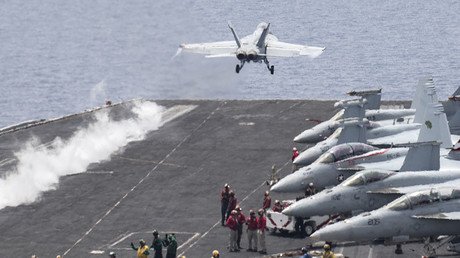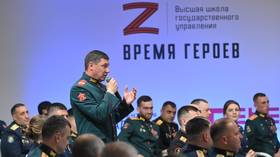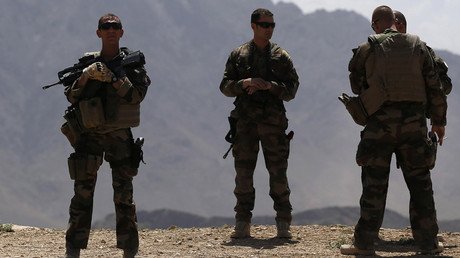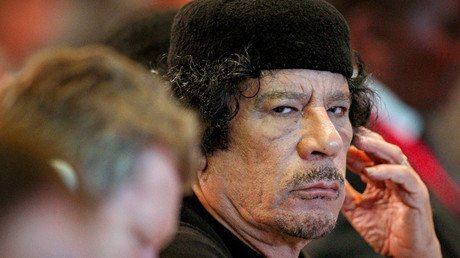US ‘not sufficiently attentive’ to Libya aftermath, Obama says amid new airstrike campaign
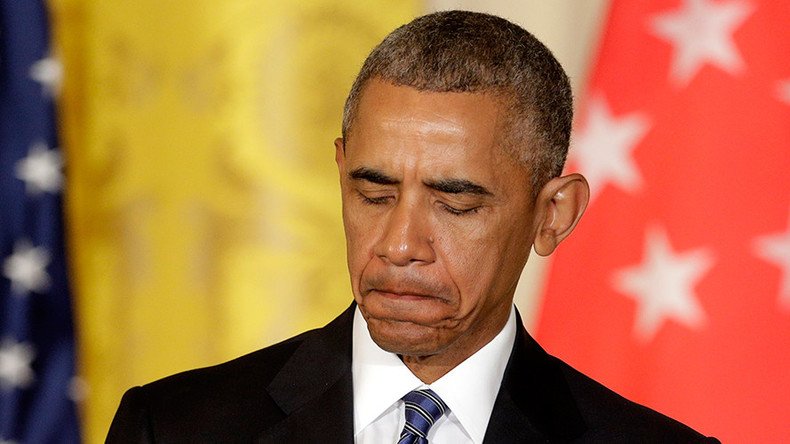
President Barack Obama took responsibility for not being “sufficiently attentive” to the power vacuum in Libya after an international coalition toppled the country’s government. The remarks came as he approved a 30-day US airstrike mission in Libya.
On Tuesday, Obama reiterated that the US and the United Nations coalition that took out long-time dictator Muammar Gaddafi in 2011 did not properly plan for or handle the aftermath of that campaign, which has led to the rise of Islamic State (IS, formerly ISIS/ISIL) in Libya.
‘Worst mistake as president’: #Obama admits he had no plan after #Libya regime change https://t.co/LdluvQdh3rpic.twitter.com/w79NDKkS02
— RT America (@RT_America) April 10, 2016
"We did the right thing preventing what could have been a massacre, a bloodbath in Libya, and we did so as part of an international coalition, and under UN mandate, but I think that all of us collectively were not sufficiently attentive to what had to happen the day after, and the day after, and the day after that in order to ensure that there were strong structures in place to assure basic security and peace inside of Libya," Obama said.
His remarks on Tuesday, during a press conference with Singaporean Prime Minister Lee Hsien Loong in the White House East Room, came a day after he authorized airstrikes in Libya, at the behest of the current Libyan government, known as the Government of National Accord (GNA).
“They are serious about trying to bring all the factions together to start creating a basic security structure to begin to monitor Libya’s borders and to cooperate internationally to deal with issues like ISIL penetration on their territory,” Obama said, noting that the GNA “had already made significant progress against ISIL and had essentially pushed ISIL into a very confined area in and around Sirte.”
While the GNA is the official ruling body of Libya and has been endorsed by the UN, much of the country is outside its control, including the capital of Tripoli. The president previously described the country as “kind of a mess,” with IS holding power in a relatively small coastal segment of the country, Libya Dawn and other Islamists in charge in Tripoli and the surrounding areas, and parts of the south being ruled by local militias.
“The absence of stability has helped to fuel some of the challenges that we’ve seen in terms of the migration crisis in Europe and some of the humanitarian tragedies that we’ve seen in the open seas between Libya and Europe,” Obama said.
Also on Tuesday, the president authorized a 30-day mission of US airstrikes in Libya against IS.
The US has launched at least seven airstrikes since the campaign began on Monday, Fox News reported. At least two of them were conducted by Marine Corps Harrier jets launched from the Navy amphibious assault ship USS Wasp on Tuesday. The USS Wasp is located in the Mediterranean, off the Libyan coast.
At the State Department, spokesman John Kirby said the US strategy is to support the GNA in the fight against IS.
RT correspondent Gayane Chichakyan asked Kirby if the American airstrikes would give the GNA the green light to crack down on the parts of the country that won't go along with it, citing a parallel government in Tobruk, whose parliament a few days ago refused to hold a vote of confidence in the GNA.
“We are not interested in seeing the crackdown, we want GNA to succeed,” Kirby said. “We continue to call the parties to support the GNA, responsibility is on them, as the international community does, that's the way forward. If they are making the work of GNA more difficult, we call on them to cease those activities. This is a political solution.”
‘Present Libyan govt is a gang willing to make a deal with the US’ (Op-Edge) https://t.co/fazZsJp9ji
— RT (@RT_com) August 2, 2016
Obama also discussed the need to bring the various political parties together once IS is defeated, as a way to prevent another power vacuum for terrorists to gain a foothold in Libya.
The US is already involved in airstrikes in Syria and Iraq. Although the current campaign in Libya has only been authorized for 30 days, the Department of Defense admitted Monday that it could be extended, possibly indefinitely.
“We don’t have an endpoint at this point,” Pentagon press secretary Peter Cook said, “but we hope that this doesn’t take a significant period of time.”
